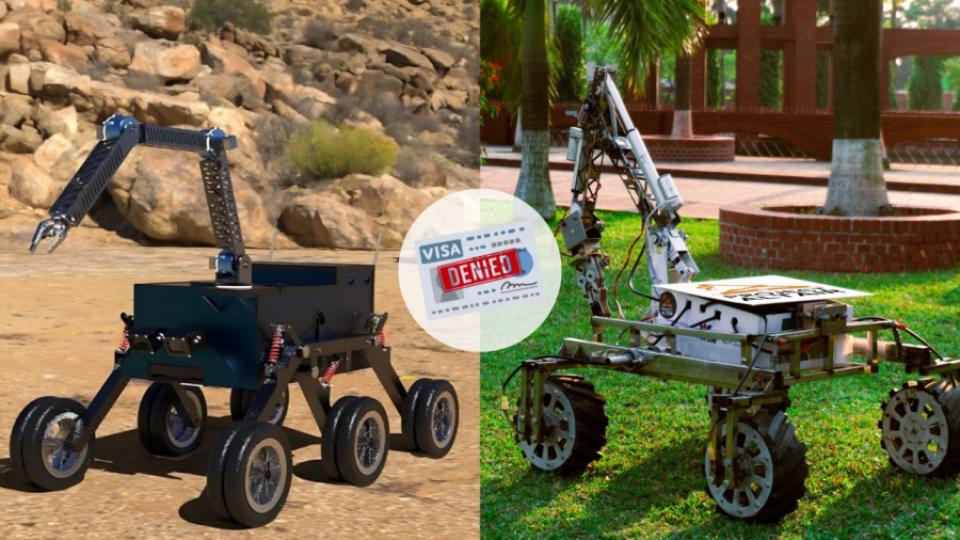February 4, 2025
NEW DELHI – Rover teams from Bangladeshi universities have been making headlines for a while now due to their remarkable achievements in global competitions like the European Rover Challenge, International Rover Challenge, University Rover Challenge, International Rover Design Challenge, and Anatolian Rover Challenge. This year, three university rover teams from Bangladesh – Team Ogrodoot from Rajshahi University of Engineering and Technology (RUET), Project Altair from Islamic University of Technology (IUT), and Team Mongol Barota from Military Institute of Science and Technology (MIST) – qualified for the finals of International Rover Challenge (IRC) 2025, which took place between January 28 and February 2, 2025, in Goa, India.
Preparations for the finals were in full swing as students of the qualifying teams aspired to deliver dazzling performances and bring home accolades. However, all hopes were crushed when the teams faced a mass Indian visa rejection.
Despite being invited to attend the competition by the organisers of IRC 2025 themselves, all members of Team Ogrodoot had their visas denied. Out of the 12 people who applied, only three members of Project Altair were granted visas, even though a team of at least 10 is necessary for rover assembly and task completions. Team Mongol Barota, on the other hand, had not applied for visas.
Rodoshe Mou, a senior member of the mechanical and manufacturing sub-team of Project Altair, shares her disappointment at the outcome, “We were officially invited to participate in the competition, yet our visas were denied despite us providing proper documentation. This unprofessional and outright disrespectful action has not only resulted in our efforts being wasted but also undermined the spirit of international collaboration.”
The team leader of Project Altair, Md Emon, expresses his dissatisfaction with the situation. “As teams, we prepare for months for international competitions, invest significant resources, and put our hearts into building a rover. To have our efforts hindered by entry restrictions is deeply demotivating. It’s essential that all hosting nations prioritise inclusivity to uphold the spirit of global collaboration in such events.”
The situation is similar for Team Ogrodoot. S M Shafayet Jamil, the team leader, recounts his experience regarding the visa denial, “It was heartbreaking for me to have to tell my passionate teammates that we weren’t granted visas for the upcoming IRC 2025. The Assistant High Commission of India, Rajshahi, delayed the visa procedure and made us do a lot of back and forth. At first, we were asked to provide No Objection Certificates (NOCs) from organisers and host venues. When we provided them with the appropriate documents, we were asked to acquire similar documents from the Ministry of Home Affairs or the Ministry of External Affairs of India. I believe this step of the procedure was only an excuse for their negligence.”
Md Jubair Ahamed, the co-lead and team manager of Team Ogrodoot, shares, “Team Ogrodoot was selected for the final round of IRC 2025 from nearly 100 global teams. Since September, we dedicated ourselves fully, working tirelessly, even during our semester finals, to clear four rigorous selection rounds. In previous years, only invitation letters and NOCs from our institutions were required for visas. However, this time, despite providing more documentation, we were asked for an additional NOC from the Ministry of External Affairs of India, which takes 30 to 50 days to process. Despite giving it our best, we were denied the opportunity to compete, simply due to bureaucracy, as not a single person from our 15-member team was granted a visa. It’s disheartening to see months of dedication go unrecognised, and we hope such barriers are addressed to ensure fair opportunities for passionate teams like ours.”
It’s worth mentioning that both teams have had remarkable records in previous IRCs, with Project Altair securing first position in the astrobiology expedition segment and standing sixth overall in last year’s challenge.


